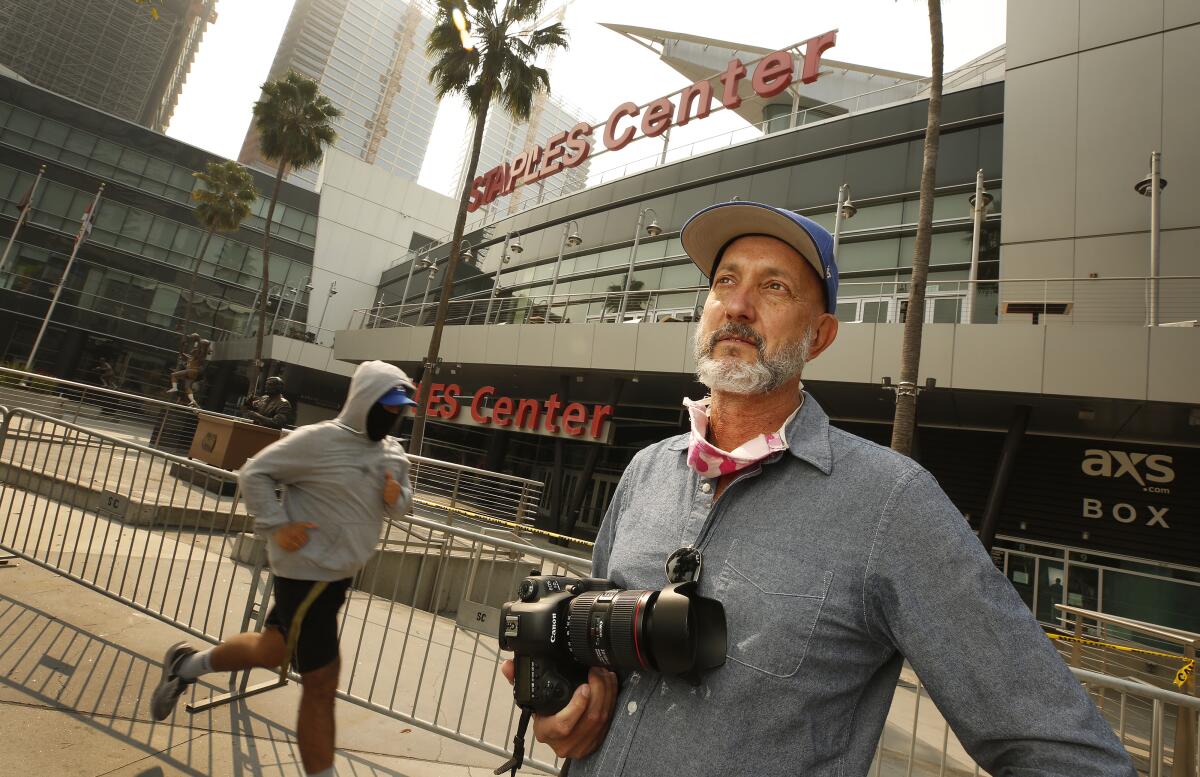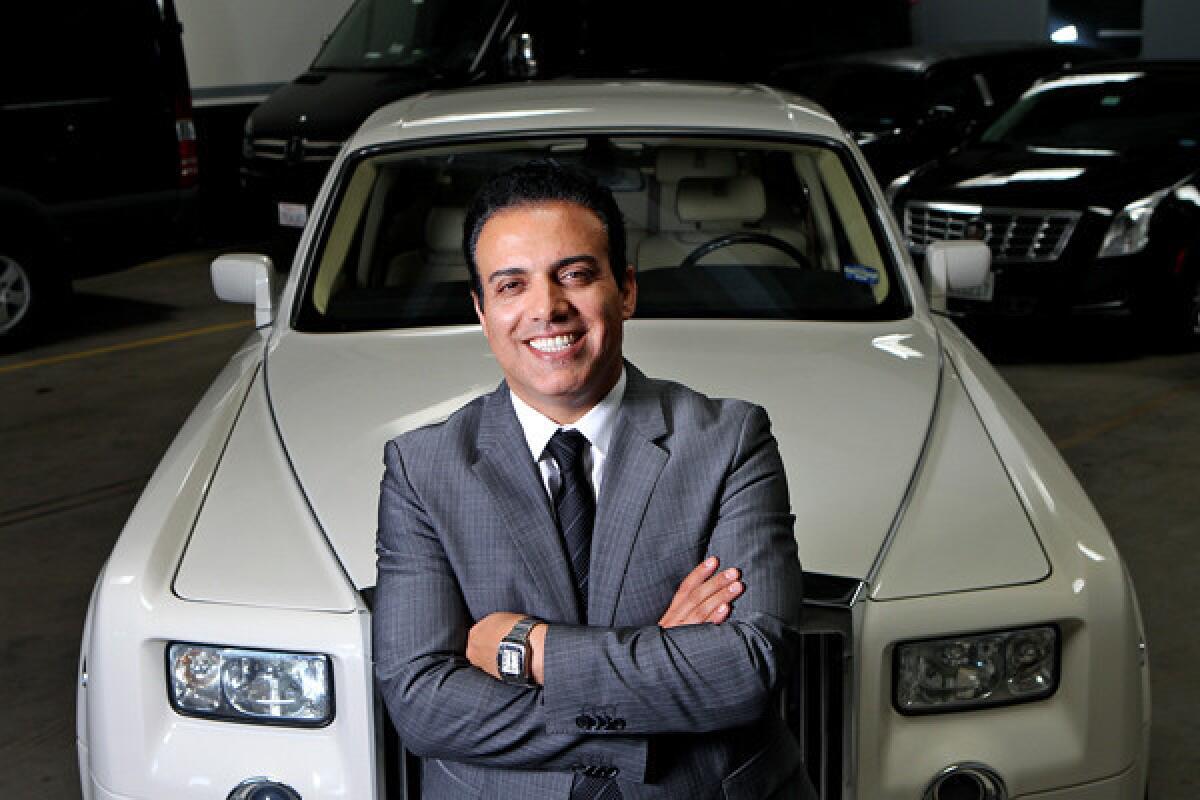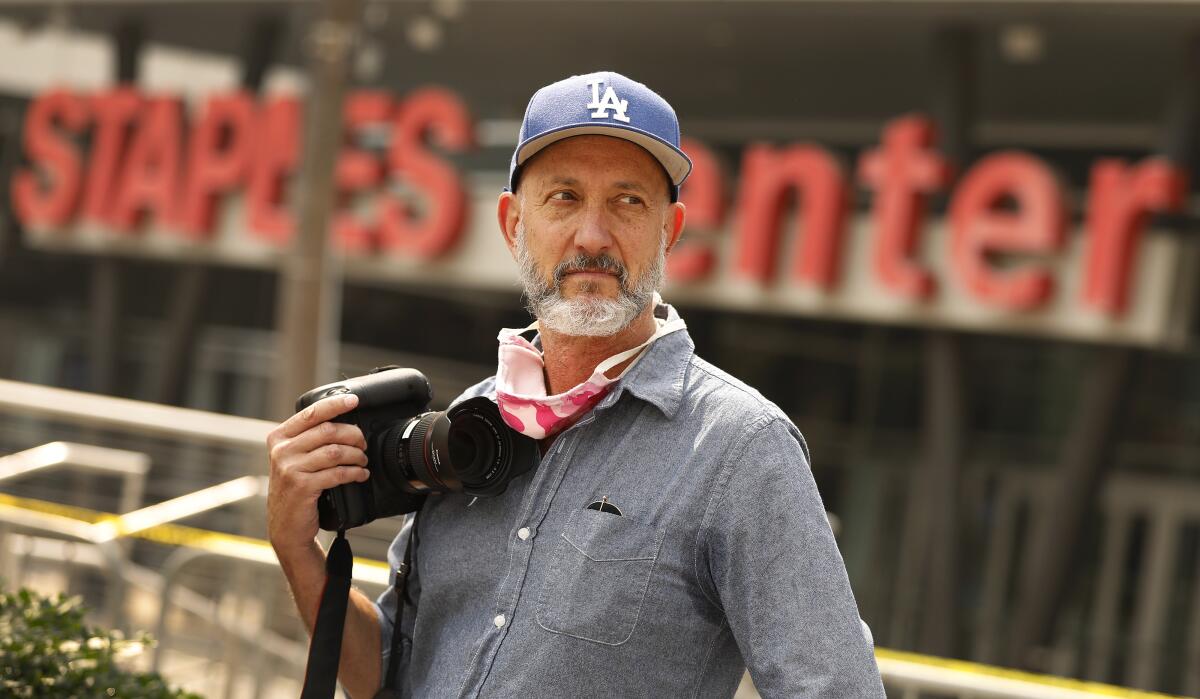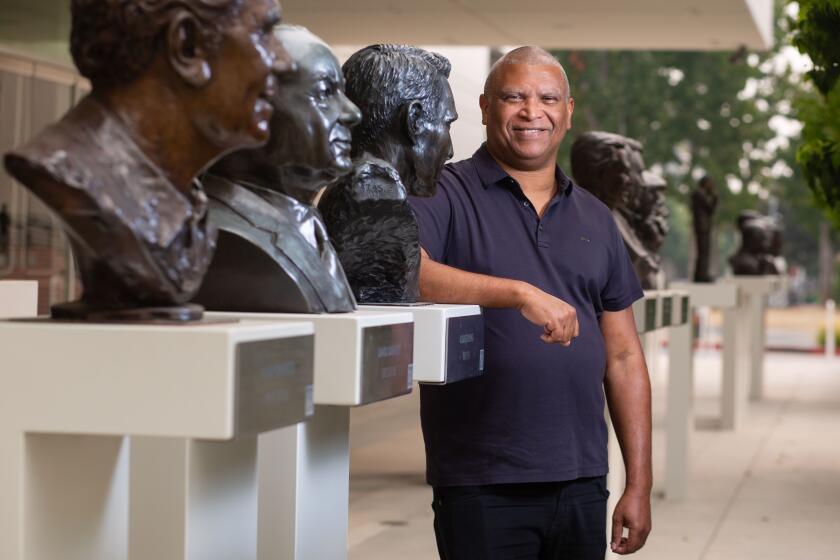For L.A. workers who depend on awards shows, this year’s Emmys are a ‘nightmare’

- Share via
Each year, the Emmy Awards celebrate the best in TV — not just on a single Sunday in September but over three months of schmoozing and glad-handing that provide a boon to the local economy. The televised ceremony and the many events surrounding it, including press conferences, screenings, luncheons and splashy afterparties, employ thousands of people in and around Los Angeles, from TV crews, publicists and stylists to bartenders, line cooks, seat fillers and security guards.
While research on the show’s economic impact is scant, a study by the consulting firm Micronomics found that the 2012 Emmys provided $43 million in immediate benefits to Los Angeles County, including $2 million in spending by out-of-town visitors, $9 million from limousine rentals, wardrobe and event tickets, and $2 million from receptions and parties. With networks and streaming services now investing even more money in the Emmys, these numbers have almost certainly grown.
For the record:
9:51 a.m. Sept. 18, 2020An earlier version of this article incorrectly identified the type of relief funding ABImages received. It was PPP funding, not PPE funding.
The Emmys are a perfect microcosm of the challenges facing the region, says Jay Tucker, executive director of UCLA‘s Center for Management of Enterprise in Media, Entertainment and Sports. “The entertainment industry really is the heart of the city. When we talk about L.A. — and really Southern California — so much rides on this ability for us to connect and create things in person. One can only hope this is not the new normal.”
Because the COVID-19 pandemic has made these large in-person gatherings unsafe for the foreseeable future, this Sunday’s virtual Emmys will be different for viewers at home as well as the many people who work behind the scenes to make the event happen. As part of our coverage of how this year’s awards are adapting to coronavirus health and safety constraints, we’ve profiled two of them.
Thanks to COVID-19, Reginald Hudlin, the first Black executive producer in Emmys history, has many unknowns to plan for. But don’t expect ‘The Zoomies.’
Alex Darbahani

Occupation: limousine company founder
Years in the industry: 23
In normal times, Emmy Sunday is one of the most lucrative days of the year for Alex Darbahani’s company, KLS Worldwide Chauffeured Services. He typically has 300 to 450 vehicles on the road and brings in as much as $1.6 million transporting A-list nominees, powerful network executives and their handlers around L.A.
This year, he’ll have about a dozen cars out.
“It’s a nightmare for us, for our industry,” says Darbahani, noting that the Emmys normally translate to about 10 days of brisk business shuttling clients to fittings, rehearsals and press conferences. “It’s a huge loss for us.”
Emmys 2020
Originally from Sweden, Darbahani started his company more than 20 years ago after a brief attempt to get into the film business. Early clients included Jennifer Lopez and Christina Aguilera. Since then, he’s expanded to New York and London and established a reputation through discreet customer service — a must when dealing with demanding celebrities. He shares a colorful story about a tipsy singer who once got stranded in her pajamas at a truck stop on the way to a show in Las Vegas. (She remains a client.) “It has been a very interesting roller coaster for me,” he says.
When they are transporting clients to major awards shows, KLS chauffeurs — Darbahani doesn’t call them “drivers” — are typically armed with emergency supplies: hairspray, glue, thread. “You don’t know how many of those dresses, when they get out of the car, it just rips.”
Much of KLS’ business comes from contracts with studios and TV and film productions, the vast majority of which have been shut down since March. In January and February, the company was ringing up more than $2 million in sales; now it’s lucky to make a tenth of that in a month. At the beginning of the year, KLS had 360 events confirmed and booked; by the end of March, they were all canceled. “Ninety-five percent of our revenue is gone.”
As a result, Darbahani has had to lay off a number of long-term employees, though he’s tried to adapt to the new reality, finding business in unexpected places. His chauffeurs have started picking up clothing from luxury retailers and bringing it to clients to try on. They leave the products at the client’s door, then bring back whatever they don’t want.
“Instead of passengers,” he says, “we’re moving products to the clients.”
Another source of income? Driving surgeons to and from the hospital when they have to operate.
He has kept the company afloat for the last six months, but with the fate of the Grammys and the Oscars still uncertain, Darbahani worries about what comes next.
“Anybody in production, the studios, the makeup artists. Whoever works in entertainment, they are lost this year. It’s so sad. All of us work so hard for it. The scary part of it is we don’t know where we’re heading to or when it’s going to end.”
Alex Berliner

Occupation: Photographer, photo agency founder
Years in the industry: 31
For more than 30 years, Alex Berliner has been photographing celebrities at the Emmys, Oscars and other glitzy industry celebrations. “People tell me I’m good at parties,” he says modestly. “I approach people with trust and I make them feel relaxed and I do it without, in my opinion, being obsequious.”
Emmys 2020
His powers of observation have resulted in some memorable imagery.
One of his best-known photos captured an awkward exchange between a blank-faced Angelina Jolie and former Sony Pictures chair Amy Pascal at an industry breakfast in 2014, shortly after disparaging hacked emails about the actress became public.
In 2018, he recovered Frances McDormand’s Oscar from the man who stole it at the Governors Ball, which he covers every year.
“There is never anything typical about an awards show,” says Berliner. “There’s always gotta be something.”
This year, however, is truly unprecedented. Instead of taking pictures inside the Microsoft Theater during the show or afterward at the Governors Ball, as he has for several years, Berliner will be watching the Emmys from home.
Like hundreds of other photographers who cover red-carpet events, Berliner, who owns the photo agency ABImages, has been hit hard by the pandemic. “Normally we have hundreds of shoots a year, and this year we’ve had tens of shoots because we stopped shooting in the beginning of March,” he says.
His agency, which had six full-time employees earlier this year, now has none.
“We could not maintain the payroll because of lack of business. We got PPP funding and we paid our employees as long as we could. We all reached that tough decision-making point [of], ‘How much more of my own savings can I give to my employees?’”
Awards season — the roughly six-month period from the Emmys to the Oscars — is a significant part of Berliner’s livelihood, and there is no telling when, if or how it will resume. Though he calls the TV Academy’s approach to the celebration this year “very sensible,” he is also concerned about the countless florists, caterers, security teams and construction crews who are losing vital income. “They’re all suffering greatly.”
Recalling the gradual resumption of festivities after 9/11, Berliner is optimistic about the industry in the long term. “We all have a yearning for our celebrations to return. I think we are all looking forward to a day when you can blow out [the candles of] a birthday cake with our loved ones. I don’t think that we are accustomed to being isolated behind a screen on Zoom.”
More to Read
The complete guide to home viewing
Get Screen Gab for everything about the TV shows and streaming movies everyone’s talking about.
You may occasionally receive promotional content from the Los Angeles Times.







